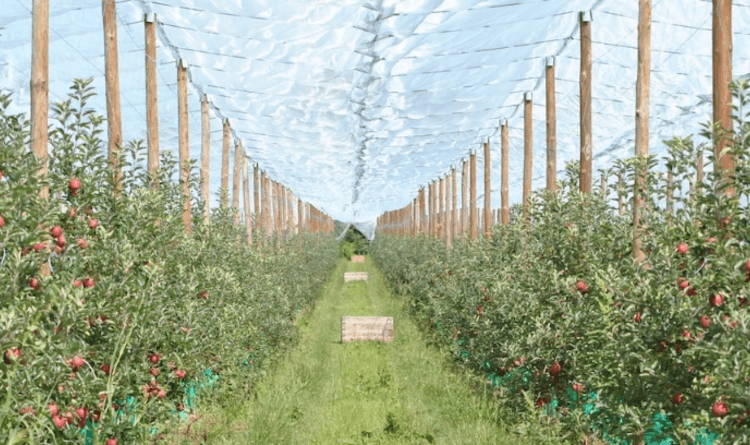Established in 1950, Blue Whale is a consortium of 300 fruit producers and 16 packing facilities in France’s best fruit-growing regions, such as the Garonne Valley, the Loire Valley, Provence and the Alps. At Fruit Logistica 2024 in Berlin, Produce Report spoke with Blue Whale’s Pascal Marrocq, sales manager for Asia and Latin America, and Anouck Morin, communications manager, about the company’s goals for the Chinese and Southeast Asian markets, as well as its recently launched (Re)Generation Fruit project.
As France’s leading apple exporter, Blue Whale grows 10 organic and 25 traditional varieties of apples, ranging from well-known classics such as Golden Delicious and Royal Gala to the red-fleshed Kissabel variety and Golden Label rouge, France’s most popular apple variety. Across its 6,620 hectares of orchards, Blue Whale also grows 22 varieties of plums, pears, kiwifruit and grapes, with a total annual fruit production of 240,000 metric tons.
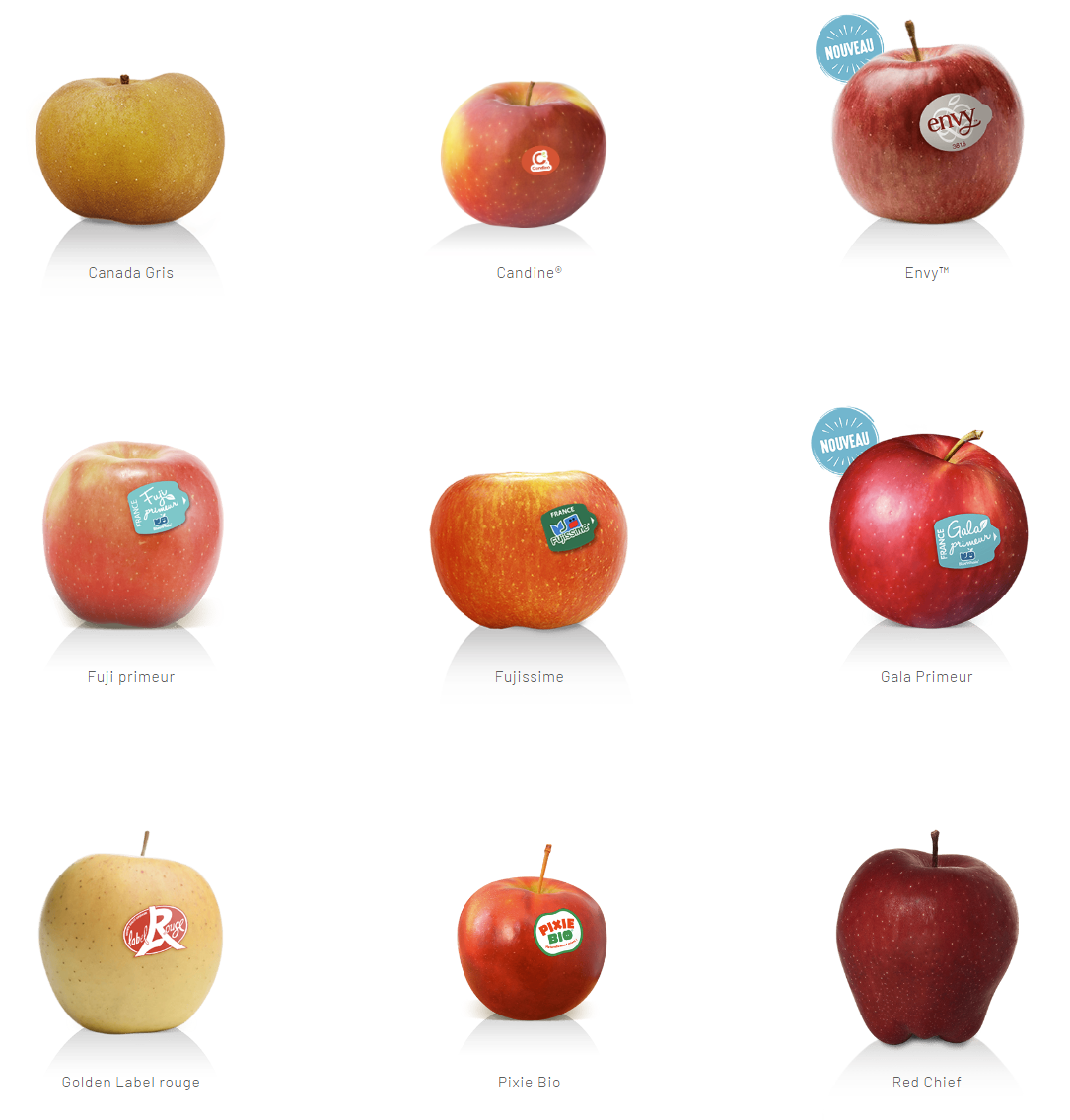
According to Marrocq, traditional apple varieties such as Granny Smith and Gala form the base of exports to China and Southeast Asia. Candine apples, which were developed in France, are also becoming an increasingly popular variety on the Chinese market. With a high sugar content and a sweet, lightly perfumed taste, these apples are well suited to the preferences of Chinese consumers. Last season, 1,000 metric tons of Candine apples were exported to Asian markets and the company hopes to double this figure this season.
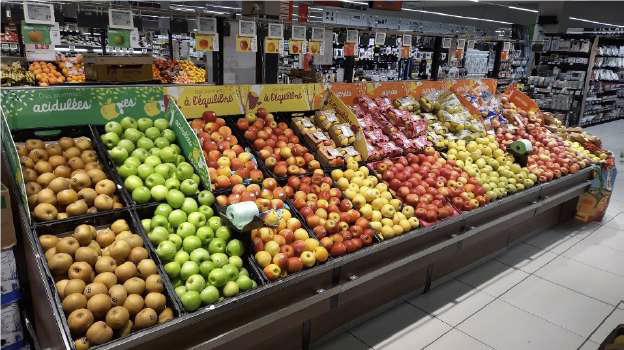
Blue Whale’s main sales window in Asia lasts from September through to Lunar New Year, which Marrocq noted has worked well for Blue Whale because it coincides with a period of increased demand while complementing New Zealand’s growing season. Although organic fruit is a major category for Blue Whale, the company is not currently exporting its organic products to China because of China’s complex organic certification process. However, “we aren’t ruling out selling organic apples to China in the future,” said Marrocq.
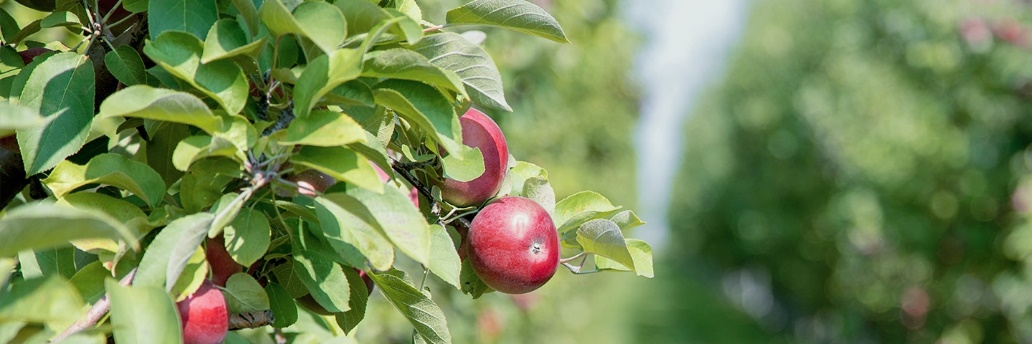
As with many other European exporters, the ongoing shipping crisis in the Red Sea has disrupted Blue Whale’s exports to Southeast Asia and China. Under normal circumstances, the company’s shipments go from French ports through the Suez Canal to markets further east, but the recent attacks on ships in the Red Sea have forced vessels to reroute around the Cape of Good Hope in South Africa. This adds at least two weeks to the transit time with the potential for adverse effects on fruit quality. Despite these challenges, Blue Whale is continuing to supply its French produce to Southeast Asian markets, specifically Vietnam, Thailand, Malaysia, Cambodia and Singapore, where the company recently opened up a new office. According to Marrocq, the company hopes to be able to restart shipments to China in the near future.
As part of Fruit Logistica 2024, Blue Whale also presented (Re)Generation Fruit, a sustainable agriculture project being led by the company and aimed at driving climate change resilience and supporting an ecological transition of the French apple industry. Together with partners Micropep, Asclepios Tech, Maf Roda, Purpan Engineering School, and France’s National Research Institute for Agriculture, Food and the Environment (INRAE), (Re)Generation Fruit is a five-year project supported by the French government and allotted 12 million euros in funding.
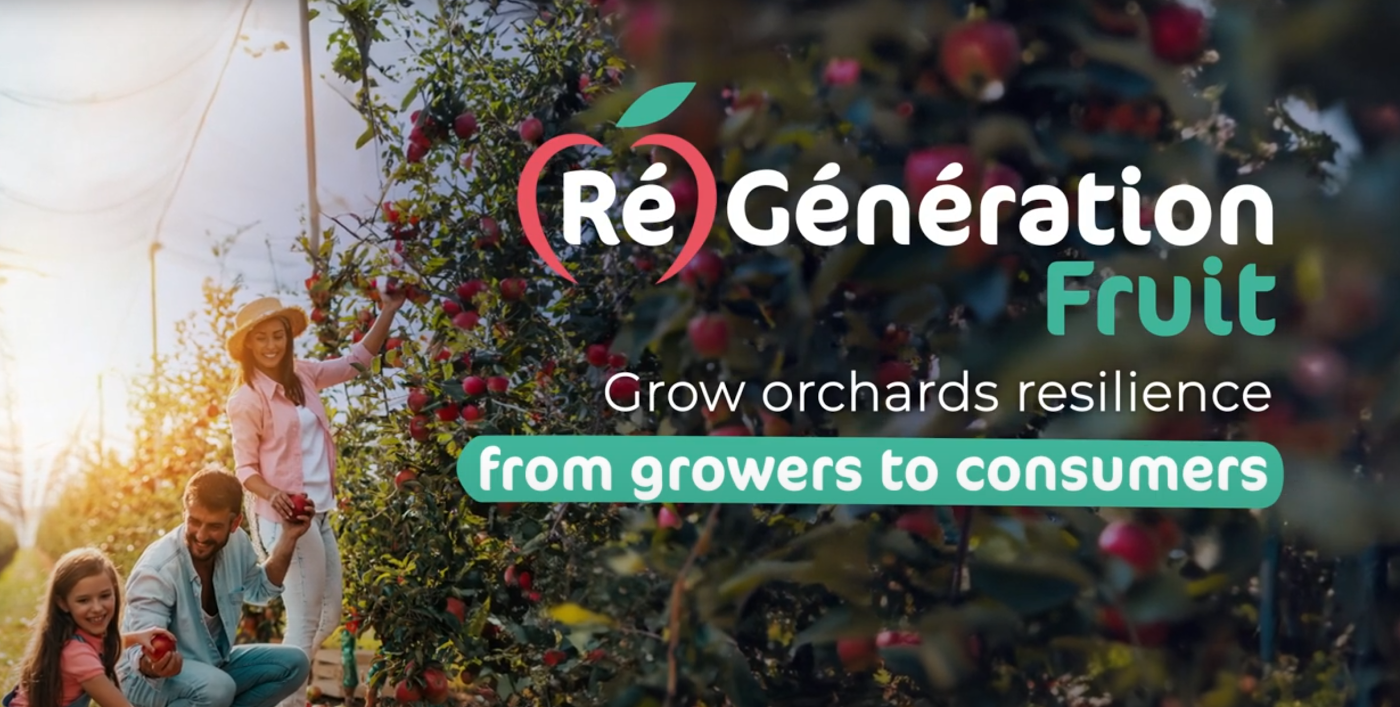
The overarching goals of the project, which is set to run until 2028, are to enhance soil life and biodiversity, increase the nutritional density of fruit, improve orchard and ecosystem sustainability, minimize pesticide use, and decrease fruit losses. To achieve these goals, Blue Whale and its partners are focused on five tangible pillars of action: improved water management founded on a better understanding of local water cycles, diversified varieties more suited to hot climates, carbon neutrality by 2050, bringing in young talent and accelerating change management, and continued innovative research and development in agriculture. The results of the project are set to be made public by 2028.
Images: Blue Whale

